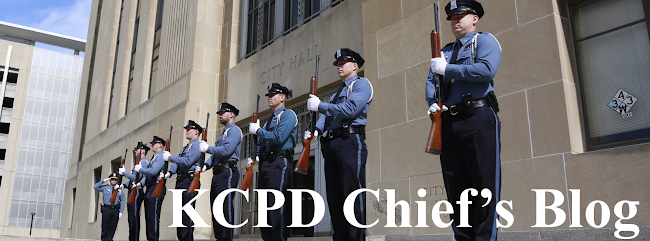Many residents may not even recognize this. What they will recognize is the work ethic, professionalism and dedication that the men and women of the KCPD give every day under the oversight of the Board of Police Commissioners.
As it does every few years, the question of “local control” of the Kansas City Missouri Police Department has resurfaced. The KCPD is governed by a Board of Police Commissioners appointed by the Governor of Missouri and confirmed by the State Senate. They all are residents of Kansas City, Mo. The elected mayor of Kansas City also has a seat on the Board. That’s why the issue at hand isn’t really “local control” but local political control. The Kansas City Council funds the Department, according to state statute. We have operated this way since 1939, when rampant corruption caused the state to take control of the department.
Many say that model is outdated. We believe, however, that it has served the people of Kansas City well for 80 years and will continue to do so. When I attend national conferences, I am pleased to hear about the reputation of the KCPD among other agencies. We are known nationwide as leaders in everything from data-led policing to de-escalation training to social services. We have not experienced the strained community relationships or large-scale scandals other major-city departments have. That’s not by accident. Maybe it’s because of the members of our community who sit on our oversight board.
Under our current governance model, we are agile and adaptable. We can focus resources where they are needed most without being slowed by politics or bureaucracy. We can quickly respond to the needs of neighborhoods and businesses because we aren’t beholden to any particular elected official.
That is not to say that we are not responsive to City Hall. We have a commander assigned full-time to work with city staff and council members. We work together closely to address crime issues in our city. A great example of this is the money the City allocated to boost the reward money for homicide tips leading to an arrest to $25,000 through the Crime Stoppers TIPS Hotline.
State statute mandates that the City allocate at least 20% of its general fund to the police department. For many years, the City has provided more than 20%, and for that, we and the residents of Kansas City should be grateful. We also have consolidated many functions with city staff, most recently information technology. Our great working relationship results in a prudent use of taxpayer dollars for public safety.
The most common argument I hear against our governance model is that we are the only one in the nation who has it. Being unique is not a negative thing. Perhaps we should be seen as the leader after which other agencies should model themselves. Look out a little farther, however, and you’ll see that we’re not that different. The majority of municipal Canadian police departments are overseen by civilian boards of police commissioners, just like KCPD’s. Police are governed this way in most major Canadian cities, including Toronto, Vancouver, Edmonton and Ottawa.
I also hear that our unique system of governance must somehow be the source of the stubborn homicide rate in our city. The other nine cities on the list of the nation’s 10 Most Dangerous Cities have local political control, and that has done nothing to abate the violence in their communities. Many of those cities also have experienced unrest that we haven’t.
We have a Board of Police Commissioners who can focus entirely upon governing the police department. City Councilmembers have many other important functions to oversee, from the airport to street maintenance to sewers. We are fortunate to have an oversight board in which our department is their sole priority. They can review policies and procedures at length. They also are open to public input and have requested it on many occasions, like during the last selection process for Chief of Police. Every month, the Board meets to publicly go over the department’s finances, policies and other items, as well as take comments from the community. You would be hard-pressed to find another City department that gets this level of public scrutiny on a monthly basis.
The Kansas City Missouri Police Department’s form of governance is unique, but that should be seen as a strength, not a weakness. It has allowed our department to function professionally, transparently and respectably for 80 years and hopefully for many more to come. For these reasons and many more, the people of Kansas City should champion the department’s current governance model.
Send comments to kcpdchiefblog@kcpd.org.
